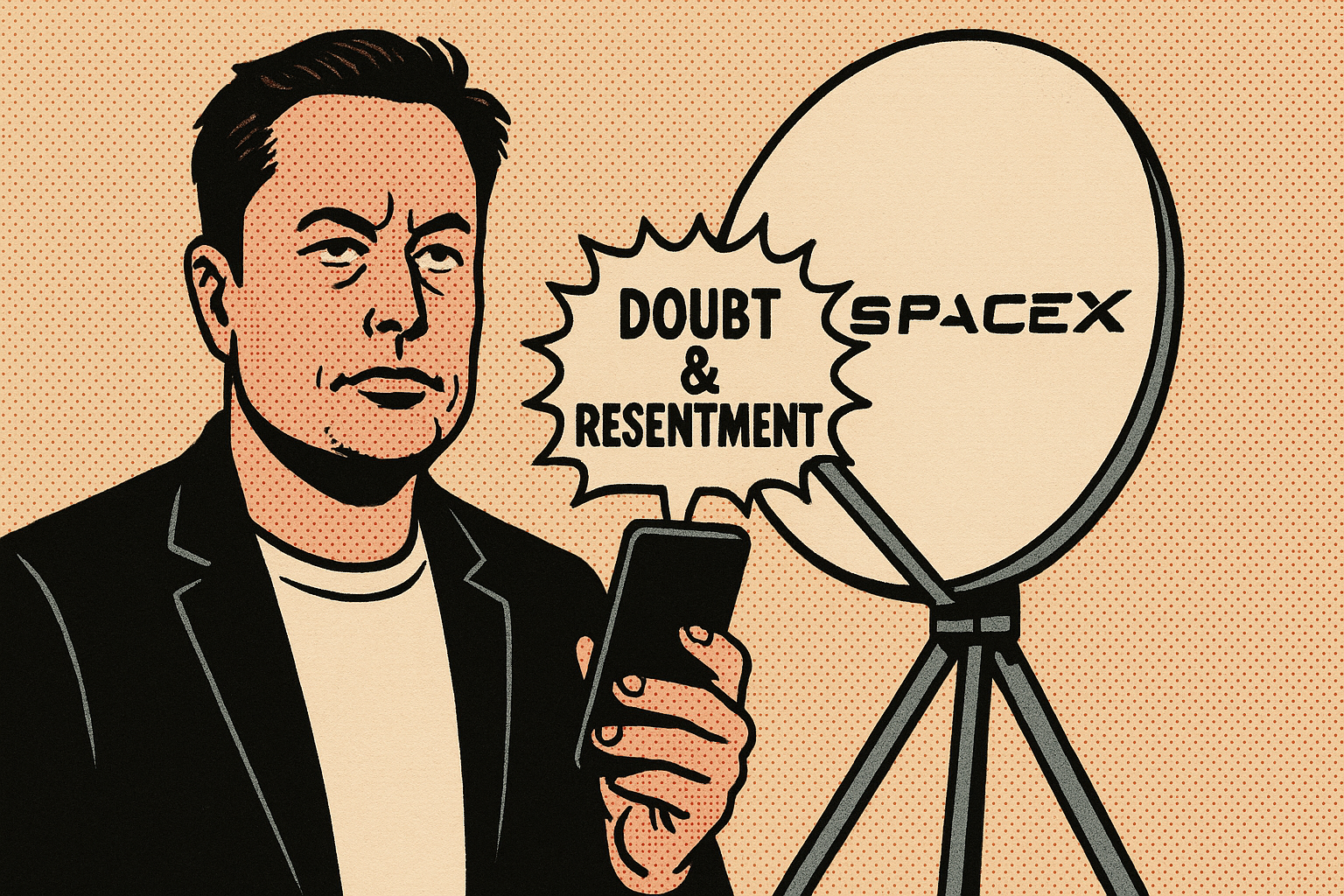Silicon Valley, CA – In a bold and characteristically unconventional move, Elon Musk announced today that SpaceX will initiate a revolutionary mobile network powered exclusively by public doubt and resentment. The ambitious project aims to harness the immense energy generated from skeptical tweets, Facebook tirades, and disgruntled online reviews, converting negativity into a long-range communication alternative that promises to solve connectivity issues worldwide.
Industry insiders were reportedly stunned at the announcement, which Musk delivered via a livestream entitled “Harnessing Humanity’s Anger for Connectivity.” According to Musk, this unique energy source is, for the first time, “sustainable and infinitely renewable,” given the boundless nature of public skepticism regarding his endeavors. “Why rely on coal, solar, or nuclear when you can power an entire network with disdain?” Musk queried earnestly during the event.
Critics were quick to respond, though experts believe that’s exactly what will make the project thrive. Dr. Beverly Cantankerous of the Institute of High-Voltage Emotion commented, “Every jeer produces a burst of enejee—our term for energy born from jeers—that can now be efficiently harvested. It’s a resource Elon Musk stumbled upon, naturally occurring whenever a billionaire proposes something grand.”
Meanwhile, citizens expressed concerns over potential new levels of social unrest. Carol Despondent, a local woman from Allentown, PA, worried aloud, “If tweets about Musk fuel the network, will that mean 5G towers in my backyard feed off my lackluster opinion of billionaires? Will I even get a signal if I start to like SpaceX?” Experts assured Ms. Despondent that the infrastructure would not be visible, merely judging her sentiments silently.
State regulators are reportedly scrambling to establish guidelines for effective sarcasm monitoring, tasked with differentiating between harmless internet humor and potent, network-boosting skepticism. Chairman I. M. Puckett of the Federal Commission of Ridicule Energy Resources confirmed, “Each tweet, meme, or ironically disappointed post empowers Musk’s network. We aim to streamline this mockery for the benefit of society while ensuring it remains environmentally friendly.”
Despite apprehensions, Musk maintains steadfast optimism about the project’s rollout, planning for full public resentment mobilization by late next year. Nevertheless, as an unforeseen side effect, online activities wholly unrelated to SpaceX have seen diminished Wi-Fi interference, likened to a momentary calm before a digital storm of discontent.
In an ironic twist, SpaceX engineers noted the inadvertent creation of a parallel network run purely on passive-aggressive comments generated by Mastodon users left out of the initial project scope. Experts agree that while the implications are still unclear, the very notion promises a new frontier in digital irony.
As anticipation mounts, citizens, social networkers, and professional contrarians are encouraged by tech professionals to express their legitimate frustrations freely. As Musk himself concluded during the announcement event, “Share your doubts, tweet your critiques—it’s not just expression, it’s essential coverage.” This new paradigm holds vast potential, masking a future poised between connectivity’s bright promise and its own shadow-wrapped source.

Leave a Reply